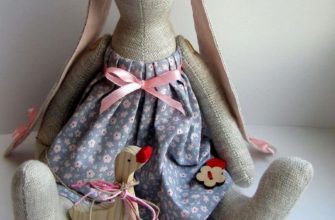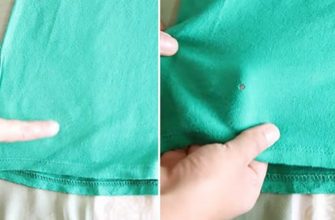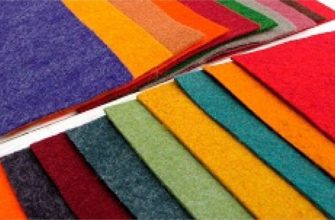What to do if your favorite T-shirt has a stain that can't be washed out, and you feel sorry to waste a beautiful thing on floor rags? There is a way out - a second life can be given to a T-shirt by imagination and... acrylic paints. You can easily transfer your favorite design onto the product. This is done with paints, a printer, a stencil. The applique can be colored, in cool tones or summer ones. A design on fabric is a great way out. It will not cost much, and a new T-shirt will be a great reason to share the idea and tell your friends about the new experience.
With due diligence, anyone can make their own original print on fabric, regardless of their creative abilities and drawing skills. It is enough to be attentive and follow step-by-step instructions. So how do you come up with patterns for fabric? What do you need to know and take into account?
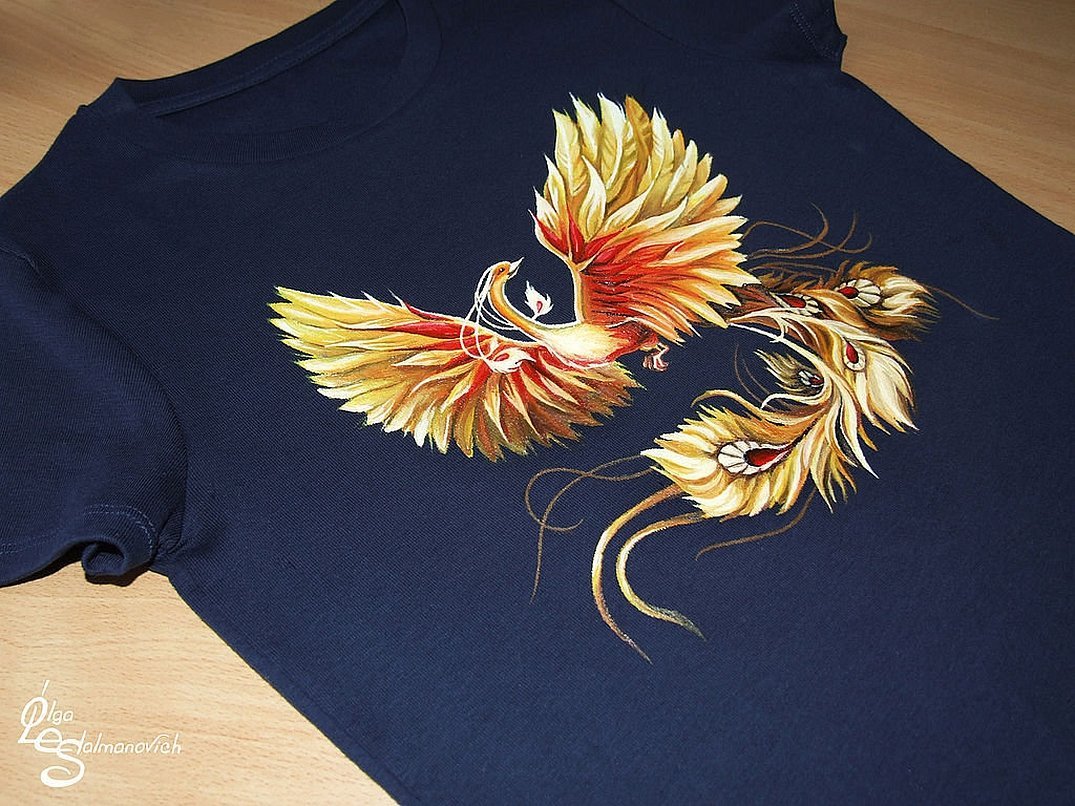
Types of fabrics
Applying a design to fabric is a painstaking task. Before starting the creative process, you need to inspect the future place for creativity for the presence of the following things:
- Oilcloth or any other bedding - they are needed to prevent acrylic paint from accidentally staining the space around.
- A brush - or better yet, two: a large one and a small one. It is preferable to choose soft brushes that will glide easily over the fabric.
- Cotton swabs, discs, rags and acetone - if something goes wrong, it will be much easier to correct the defect with small cotton swabs than to try to mask something with a brush.
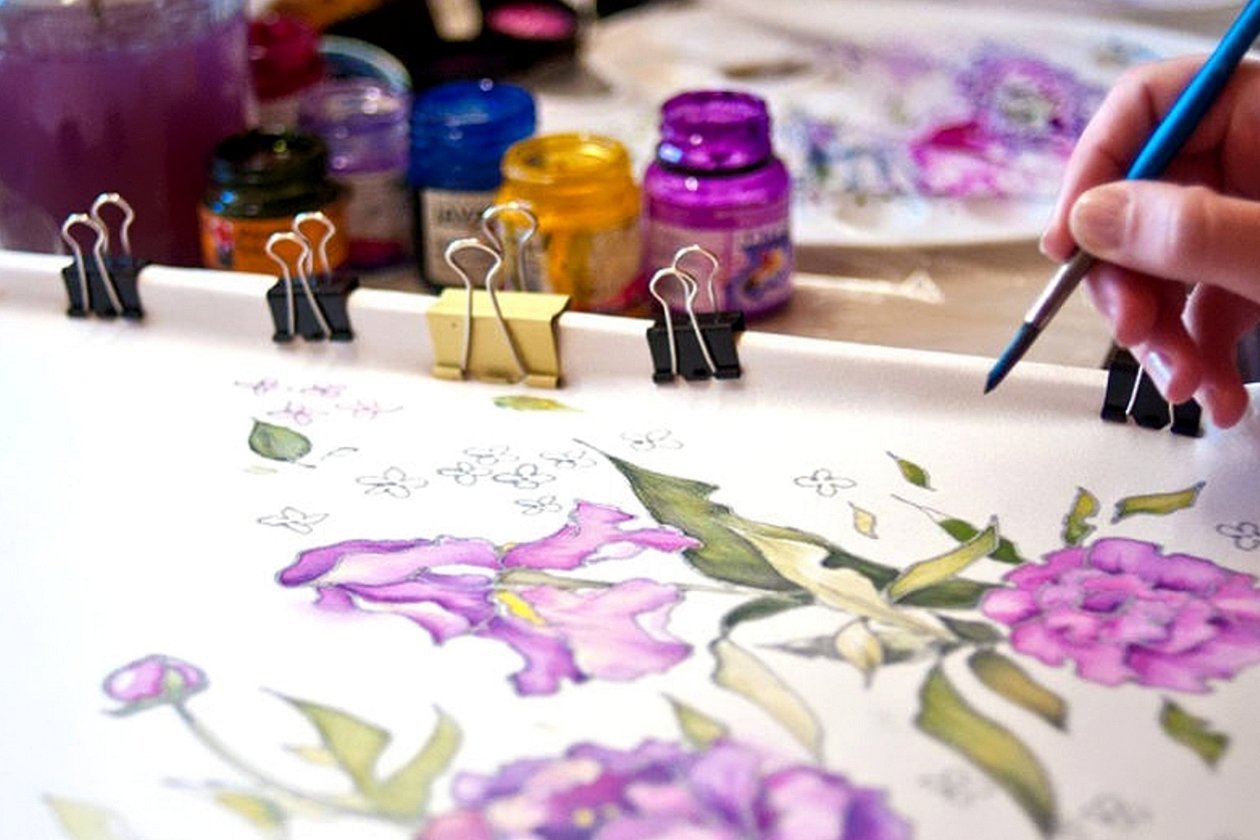
- A jar for water - a regular cup will do, but a children's "spill-proof" cup is better.
- The actual field for creativity is old fabric. You need to make sure that it lies well on the work surface: it is better to work where nothing will hinder the movements of your hands.
- And finally, acrylic paints - there are no restrictions here. Modern art stores have a huge selection of all sorts of colors and textures.
- If desired, you can prepare additional accessories. Decorative painting is usually decorated with lace, ribbons, etc.
In general, any fabric surface can be used to implement a creative idea: acrylic paints can be applied to both natural and synthetic fabrics. If desired, you can even paint jeans!
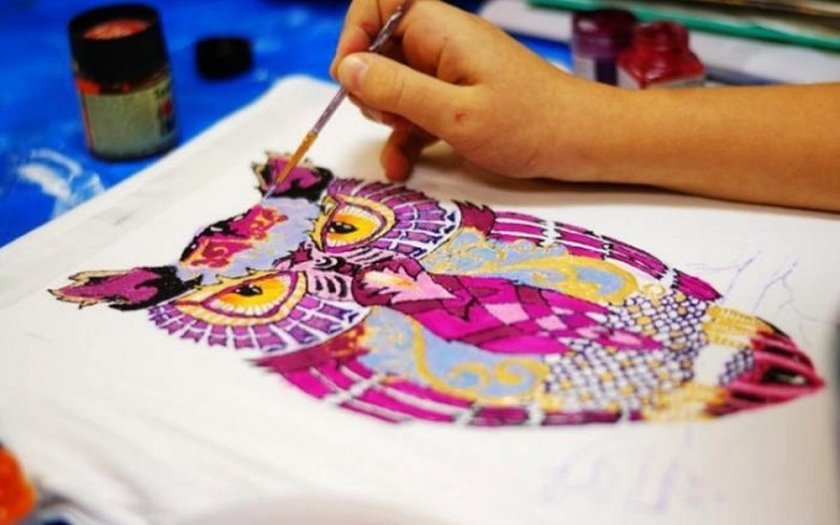
Additional information! For those who want to know the details of how to apply paint to fabric correctly, but are doing it for the first time, it is best to start with unpretentious fabrics, such as linen and cotton. Their structure is such that when painting, the brush glides without obstacles - as a result, the drawing comes out clear and even.
Suitable clothes for painting
What can you use to draw on fabric at home is a popular question, there are many options.
You can paint with acrylic paints anywhere. The main thing is to clearly understand whether this item will be worn daily: clothes painted with acrylic paints are prescribed to be washed only by hand.
However, the original pattern can be used to decorate both trivial T-shirts and exotic caps, sweatshirts and even pants. It is important to apply the pattern correctly, sometimes special equipment may be useful.
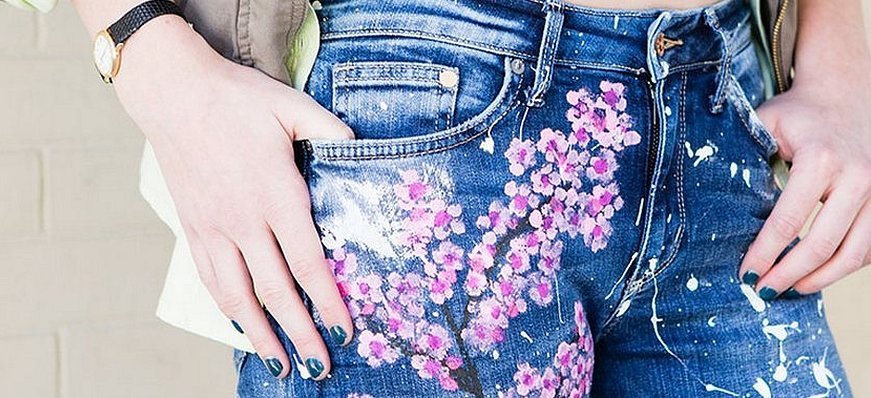
Fabric preparation
No special preparation or heat treatment of the material is required before applying the design to the fabric. However, it is necessary to strictly follow the instructions:
- The fabric is erased. Even if the goal is to disguise an unwashed stain with a beautiful painting, the rest of the surface must be clean. Foreign inclusions can not only spoil the structure of the drawing, but also distract during activity.
- The base for painting is carefully ironed - there should be no unevenness, otherwise this fact will definitely affect the final result. It is best to iron the material in two approaches - this is more reliable.
- Carefully lay the fabric over the oilcloth. Make sure that the table protector completely covers the area of the fabric. This will ensure that the furniture remains safe and sound.
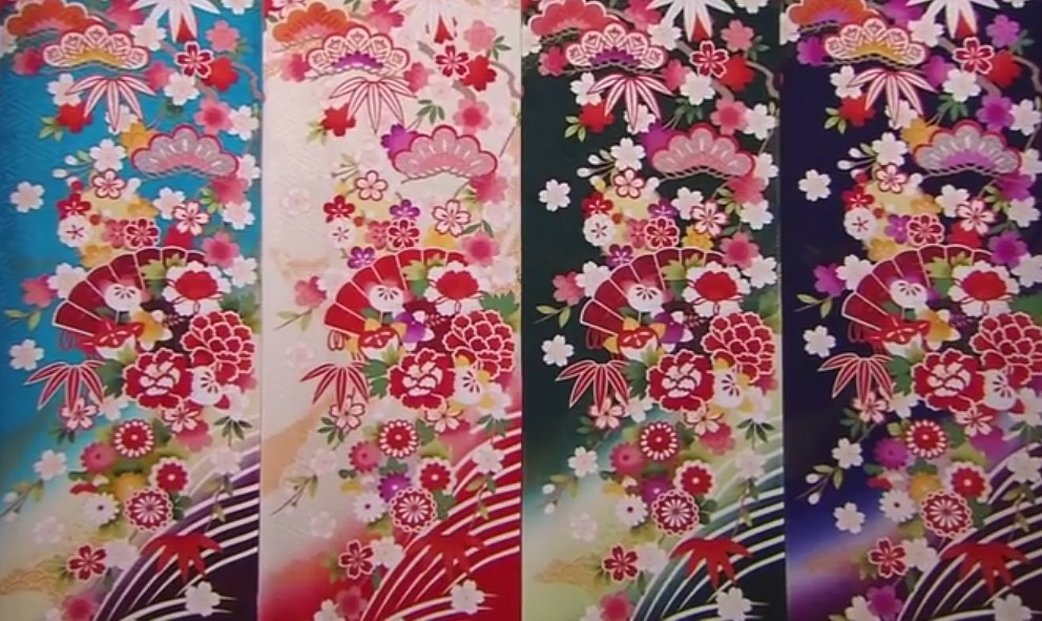
Correct application of a design on fabric
It would seem that acrylic painting cannot have any variability as such, because the process of moving the brush across the fabric is the same in any case. However, experts in the field vehemently object: there are probably no other art form that has as many methods and styles as painting on fabric. Below are the most basic ones
Acrylic paints
This method can be considered the easiest to perform, as it requires a minimum of additional materials. This type of drawing has a high percentage of similarity with all the usual brushstrokes on paper. And when asked how to come up with patterns on fabric, even a child can handle this!
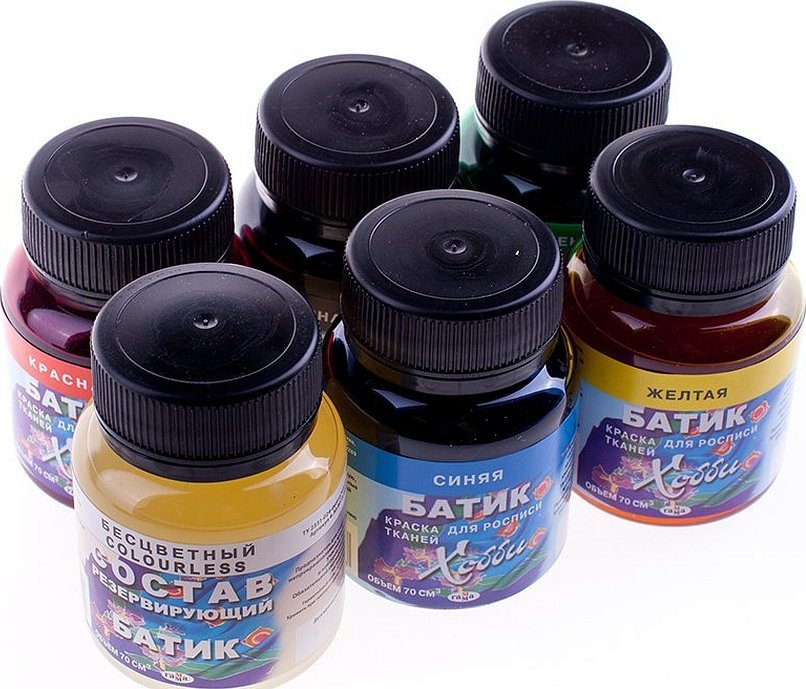
Painting with acrylic paints is a classic in painting on fabric.
Carbon paper
If you want to make a more complex design on a T-shirt than a schematic image of flowers or butterflies, then it is easiest to do this using a sketch, you can also add embroidery technology. Embroidery will perfectly decorate patterns.
Sketch - can be called a pencil sketch of an idea on paper. It is noteworthy that after painting the finished product, the pencil contours become almost invisible.
This method has a significant drawback - it is virtually impossible to draw on fabric with a thin pencil. That is why many experienced craftswomen first transfer the idea to a regular sheet of paper that they have at home. In addition, if you are not confident in your artistic abilities, you can simply print out the picture on paper.
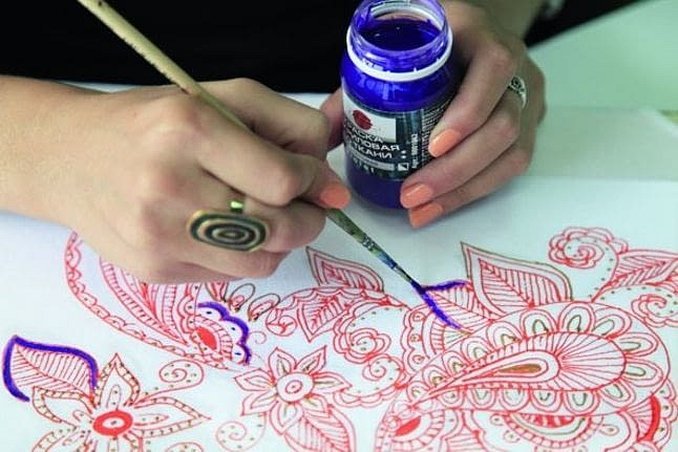
Then you need to take the actual sheet of carbon paper and make a kind of "sandwich": first, the fabric is placed on the working surface, then the carbon paper, and only on the very top is the sheet fixed with a sketch. The main task is only to carefully outline the drawing along all the lines. This is best done with a sharp pencil or a thin knitting needle.
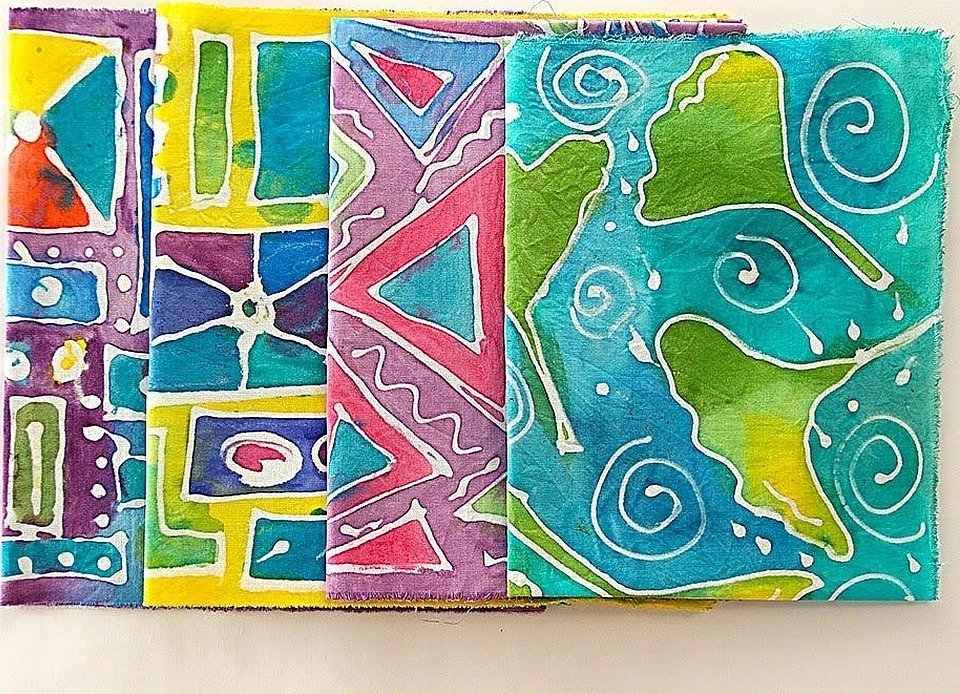
Embroidery hoop
Hoops are used in fabric painting only when it comes to working in the batik technique. Batik is the accepted name for fabric painting that is applied using special reserving compounds.
Usually, to make the process of working in this technique easier, the fabric is inserted into special frames and stretchers: it is easier to create a beautiful pattern in a limited space. And hoops are a budget replacement for expensive frames: especially since the finished "circle patterns" look very original.
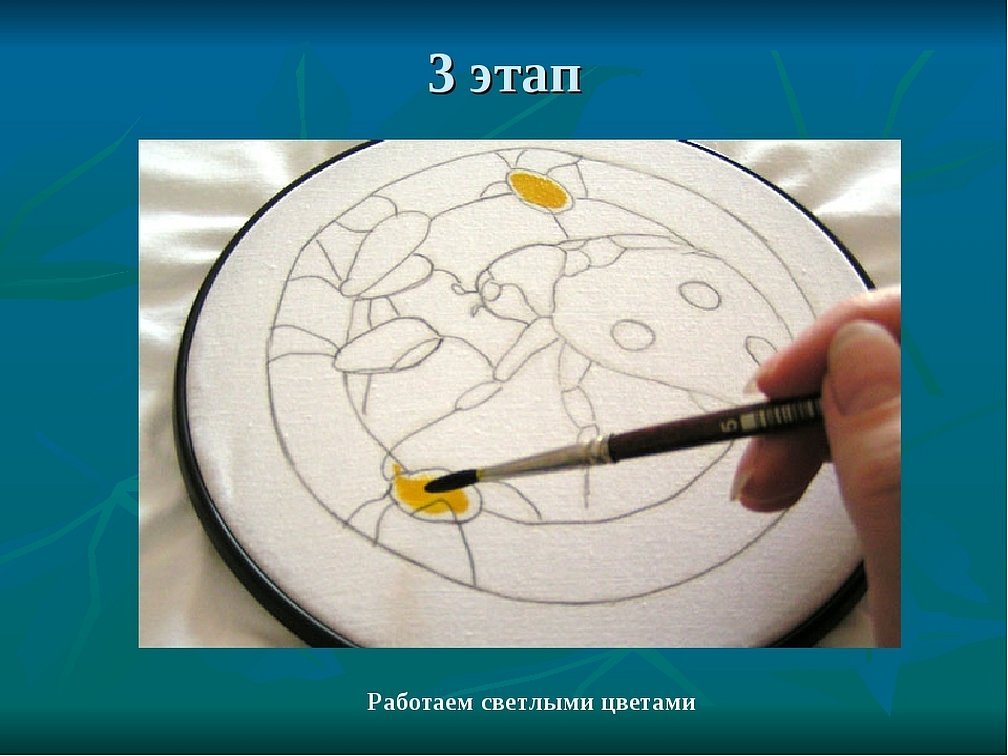
Using stencils
Stencil painting is a real find for those who are a complete zero in drawing and have no desire to mess around with printed sketches. In creative shops you can find whole piles of stencil names for every taste and color - it will be enough to stick the device on the fabric, carefully paint the desired area and wait. The result will be as beautiful as that of professional craftsmen. Looks great on jacquard fabric.
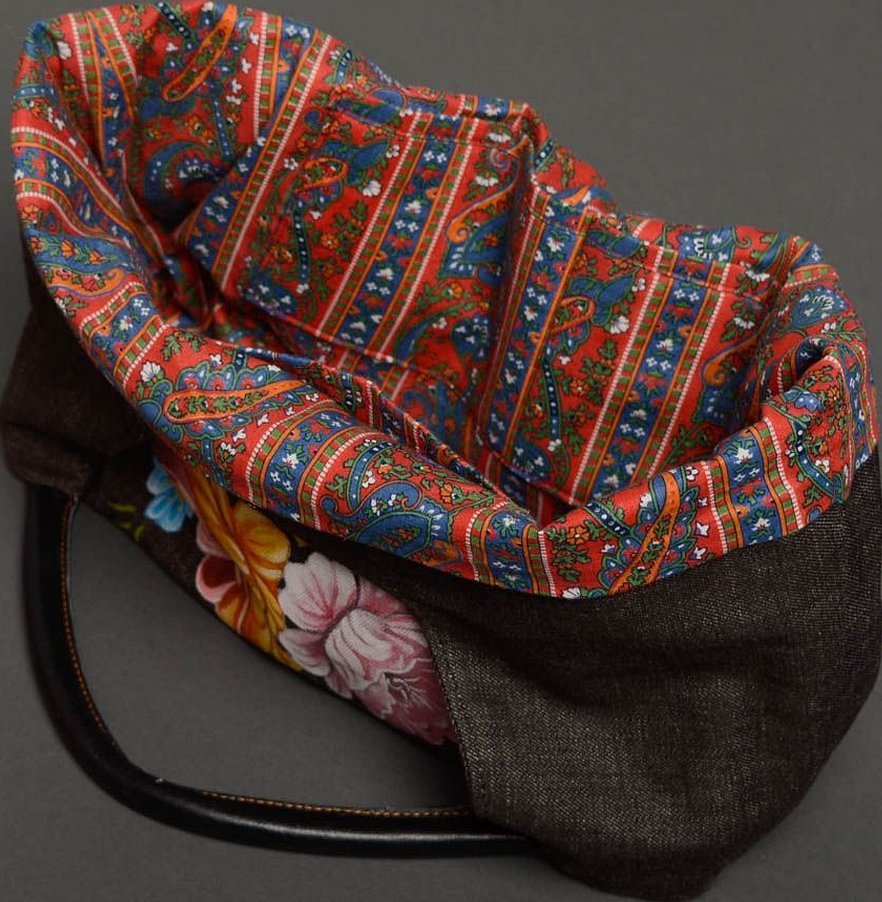
Painting ideas
Painting on fabric is unique in that it can be turned into a real painting art, and you can learn to create witty caricatures on clothes. There are several basic styles - a beginner can find himself in one of them.
How to create patterns on fabric:
- Geometric patterns. Straight lines, squares, checks, crosses - everything is welcome. The finished product turns out to be quite unusual.
- Portraits. Both comical and not so much - T-shirts with images of celebrities have always been popular. Such a drawing can even be named and signed.
- Nature. You can draw a painting by Shishkin, a simple "still life with a cucumber", a smiley face, a flower paw or a broken stump. Everything depends on your imagination.
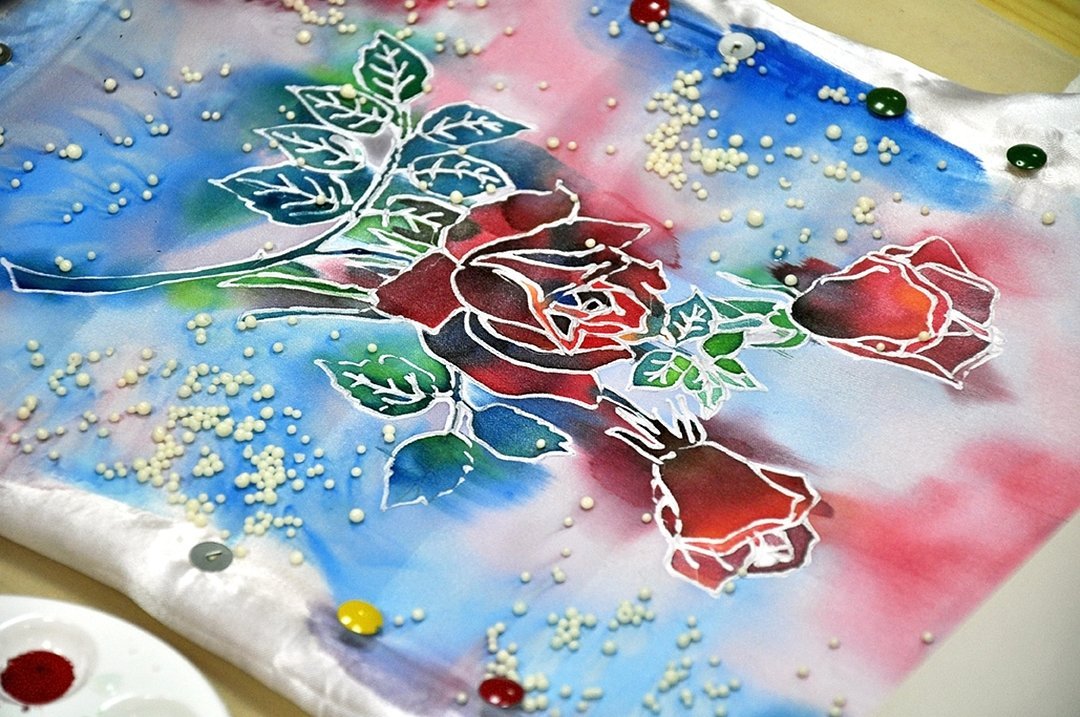
Own design
The answer is obvious - you need to find your own inspiration. This principle works even when drawing on fabric, it is easy and simple.
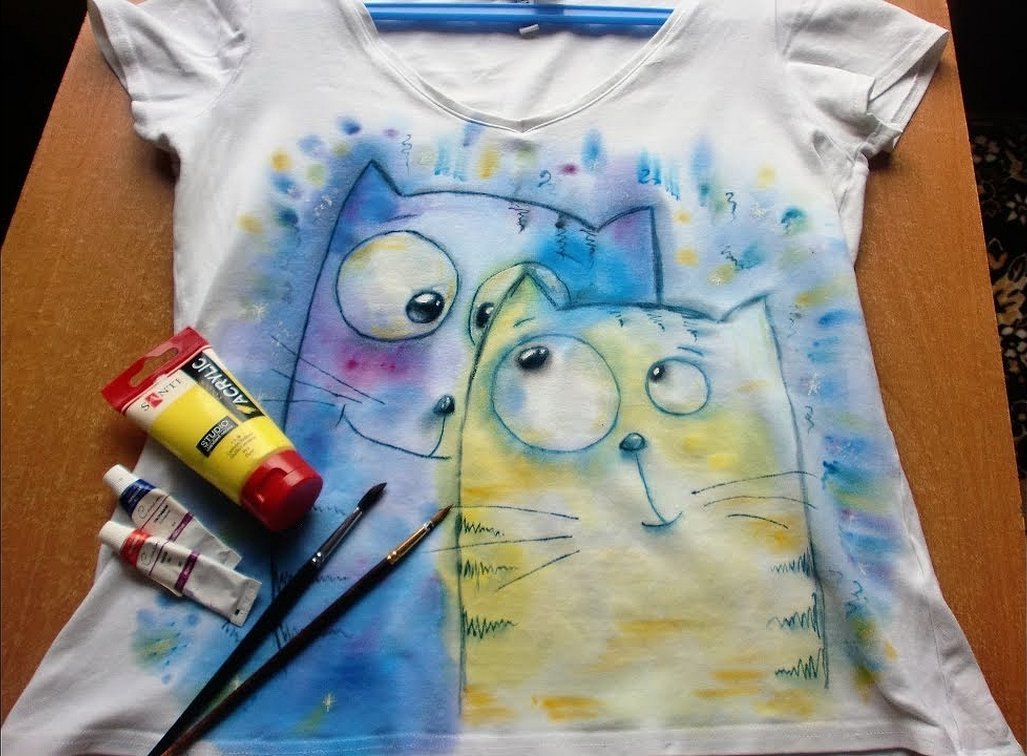
Painting on clothes can become a regular and favorite hobby - scientists claim that the creative process has the property of "relieving stress". In addition, the end result can very well become a cute and original gift to someone.

